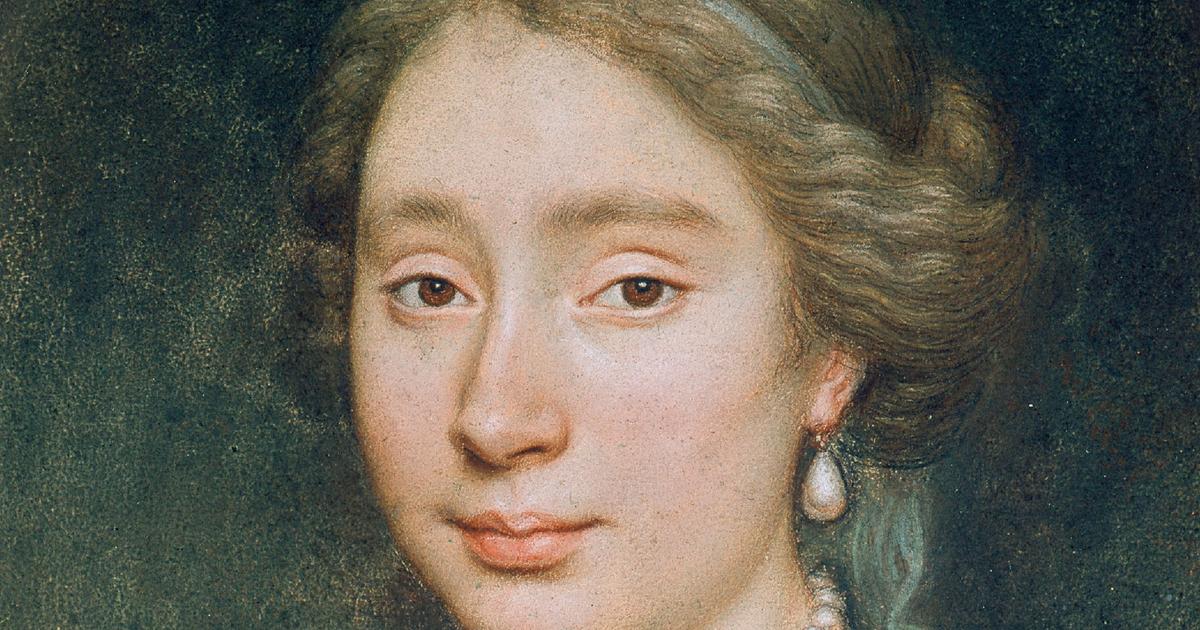Molière is forty years old.
Armande barely twenty.
Is she the sister or, as is rumored, the daughter of Madeleine Béjart, whose lover he himself was for a long time?
Molière does not seem to care about these nasty rumours.
He is in love with a youth and promises himself to be his Ariste, rather than a Sganarelle who would forbid him flies and ribbons.
To discover
Discover the “Best of the Goncourt Prize” collection
Read alsoMichel De Jaeghere:
“Tartuffe is still with us”
On February 20, Molière and Armande united at Saint-Germain-l'Auxerrois.
The whole troupe attended the consent of the spouses.
Madelon sulked a bit, but the gallant was past forty-four, which made her sad.
Jean Poquelin, on the other hand, was all smiles and good nature as he gazed at his eldest son.
Since Molière returned to Paris, the upholsterer has taken a liking to the theater and goes willingly to the Palais-Royal where the troupe moved when the Petit-Bourbon room was destroyed by the superintendent of the King's buildings to build a colonnade there. .
M. de Ratabon had not thought it necessary to warn Molière, who guessed, in this sudden haste to implement a project which had been languishing for almost five years, the influence of the actors of the Hôtel de Bourgogne, always so quick to harm him.
Louis XIV, alerted by Monsieur, quickly found a new stage, that of the Palais-Royal, with Molière's troupe.
The king does not hide the keen pleasure he takes in the company of John the Baptist.
The latter, on the death of his brother Jean, had enough wit to take over the office of upholsterer to His Majesty.
It allows him to regularly attend the rising of the king who, for his part, seeing him observe the faces of the courtiers, has great fun trying to predict which of them Molière will caricature in his next comedy.
Does he make suggestions?
It's not impossible, but Jean-Baptiste never boasts of an intimacy, even of a complicity with Louis XIV, which could pass for boastfulness.
Always eager to satisfy the wishes of the king, who did not like to wait, Molière knew how to stay in his place, without feeling any bitterness.
Surrounded by so many sycophants and annoying people, Her Majesty appreciates her good nature.
Do we gossip about his libertine morals?
We talk about his marriage?
And what would the world do if it couldn't denigrate its neighbour?
Louis XIV prefers to hear Paris peddle a thousand and one gossip rather than see the capital get involved in some new Fronde.
As for the young Armande, the king knows what to believe about her birth.
Ten months after Molière's marriage, which was not as happy as he had hoped, the Palais-Royal troupe gave the first performance of
L'École des femmes in
which Molière played the role of Arnolphe.
It's a triumph that sparks a heated argument from purists.
Pierre Corneille's brother, Thomas, vehemently denounces a prankster theater which, by dint of soliciting the popular, will end up chasing the noble tragedy from the theaters!
Donneau de Visé, the son of one of Monsieur's quartermasters, distills his own venom while a certain Boursault commits a nasty play, Le Portait du Peintre, in which Molière's playing is cruelly mocked.
These are only literary disputes which do not displease Molière too much, but when the cabal takes a more personal turn – Montfleury, an actor at the Hôtel de Bourgogne, accuses Jean-Baptiste of having married his own daughter – Molière decides to respond by staging
The Critique of L'École des femmes
.
He tells his story to the defamers, while the young Boileau and Jean de La Fontaine resolutely take his side.
At Court, Madame, the Duc de Brissac and the Grand Condé loudly displayed their support for Molière.
As for the king, he grants a pension of one thousand pounds to the troupe of the Palais-Royal which he invites to Versailles where Jean-Baptiste will offer
L'Impromptu
.
He takes great pleasure in counterfeiting the emphasis of great actors and more particularly that of Montfleury.
Hearing it imitate the Hôtel de Bourgogne style, Madame could not resist.
Her laughter is so contagious that the king, who is not insensitive to the charm of his lovely sister-in-law, cannot help but giggle in turn.
The spite of the unfortunate will no longer have bounds, when the king and Madame agree to be the godfather and godmother of Louis Poquelin, the first born of Molière.
The cover of Figaro Hors-Série What's New?
Moliere!
CCO Paris/Carnavalet Museum
"What's new?
Molière!”, 114 pages, €8.90, available on newsstands and Figaro Store.

